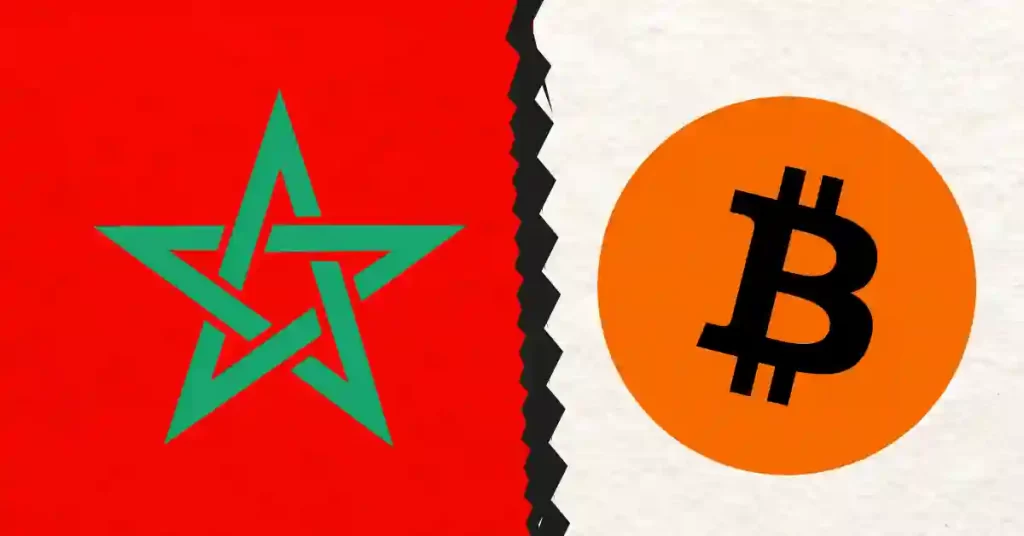
In a significant move towards embracing digital innovation, Morocco’s central bank, Bank Al-Maghrib (BAM), is reportedly preparing to legalize all cryptocurrencies. The decision, if finalized, would mark a historic shift in the country’s stance on digital assets and position Morocco as one of the few nations to fully legitimize cryptocurrencies.
Morocco’s Evolving Crypto Stance
For years, Morocco had maintained a cautious approach toward cryptocurrencies, citing concerns over financial stability, security, and the risks of illegal activities. In 2017, BAM outright banned the use of cryptocurrencies, warning citizens of potential legal repercussions for trading or transacting in Bitcoin and other digital currencies. However, the rapid global adoption of blockchain technology and its economic potential appear to have prompted a change in perspective.
Governor Abdellatif Jouahri of BAM previously signaled this shift, stating that the central bank was working on a comprehensive regulatory framework for cryptocurrencies to mitigate risks while fostering innovation. The legalization effort aligns with Morocco’s broader strategy to modernize its financial system and attract investment in emerging technologies.
Key Drivers Behind the Move
Several factors have likely influenced Morocco’s decision to legalize cryptocurrencies:
- Economic Modernization:
Morocco aims to become a hub for technology and innovation in Africa. Legalizing cryptocurrencies could encourage investment in blockchain-based solutions, positioning the country as a leader in the region’s digital economy. - Rising Popularity of Crypto:
Despite the 2017 ban, the use of cryptocurrencies has quietly grown in Morocco. In 2023, the country ranked among the top adopters of Bitcoin in North Africa, reflecting a strong public appetite for decentralized finance. - Global Trends:
With major economies such as the UAE, the United States, and the European Union advancing their crypto regulations, Morocco seems eager to align itself with the global push for regulated adoption rather than risk being left behind. - Financial Inclusion:
Cryptocurrencies have the potential to increase financial inclusion by providing underserved populations with access to digital financial services, a key objective in Morocco’s development agenda.
The Regulatory Framework
Reports suggest that BAM is developing a multi-faceted regulatory approach to ensure that cryptocurrency transactions are safe, transparent, and in compliance with anti-money laundering (AML) and counter-terrorism financing (CTF) measures. The framework is also expected to address taxation, investor protection, and the integration of blockchain technologies into traditional financial systems.
The central bank is reportedly consulting with stakeholders, including the Ministry of Finance, financial institutions, and international organizations, to create a robust policy. Additionally, BAM plans to introduce a digital education campaign to inform citizens about the risks and benefits of cryptocurrencies.
Implications for Morocco and Beyond
Legalizing cryptocurrencies could bring significant benefits to Morocco, including increased foreign investment, improved financial literacy, and access to innovative financial products. It may also set a precedent for other African nations, encouraging them to follow suit in regulating and adopting digital currencies.
However, challenges remain. Regulatory enforcement, cybersecurity risks, and market volatility are critical issues that BAM must address to ensure a smooth transition.
Conclusion
Morocco’s decision to legalize cryptocurrencies is a bold and forward-thinking move that could transform its financial landscape. By embracing digital currencies and establishing a clear regulatory framework, the country has an opportunity to lead in Africa’s burgeoning digital economy. If successful, this initiative could position Morocco as a trailblazer in cryptocurrency adoption and innovation, paving the way for a new era of financial inclusivity and technological progress.
While the journey ahead is complex, Morocco’s readiness to adapt signals a promising future for digital finance in the region.




